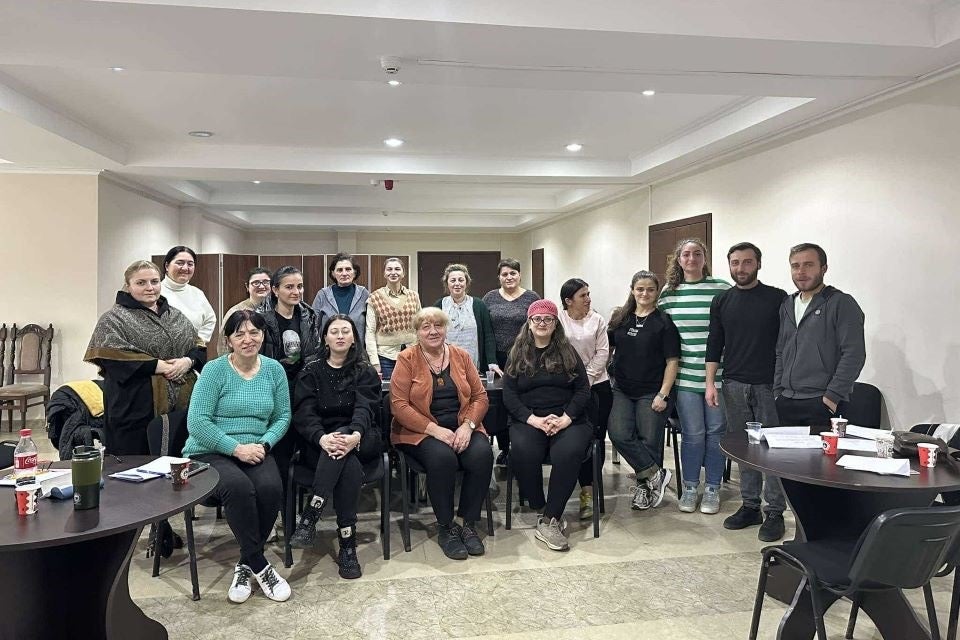UN Women promotes the advancement of care services in Georgia
Date:

Women’s right to participate fully in the labour market and realize their professional potential is often constrained by the unequal distribution of care and domestic responsibilities. This issue persists both globally and in Georgia, as substantiated by statistical data. The 2023 Labour Force Survey conducted by the National Statistics Office of Georgia (Geostat) indicates that 56.9 per cent of women are economically inactive, primarily due to their disproportionate share of unpaid care responsibilities. Additionally, findings from the UN Women and Geostat Time Use Survey reveal that women spend five times more time on unpaid domestic labour compared to men. This inequity not only impedes women’s empowerment and the advancement of gender equality but also hinders broader socioeconomic progress and the sustainable development of the country.
Global evidence underscores that investing in care services is essential to addressing the unequal distribution of care responsibilities and improving service quality. Drawing on international best practices and local contexts, UN Women prioritized the strengthening and enhancement of care services in Georgia throughout 2024. As part of this effort, licensed training courses for home-care providers and personal assistants to persons with disabilities were conducted in collaboration with the Ministry of Internally Displaced Persons from the Occupied Territories, Labour, Health and Social Affairs of Georgia.
As part of this initiative, eight training courses were conducted, and 148 care workers successfully completed them across 15 municipalities in Georgia. Of these participants, 84 were trained as personal assistants for persons with disabilities, while 64 received training as home-care providers. The courses equipped participants with critical theoretical knowledge and practical skills necessary to enhance the quality of care for persons with disabilities and older adults in need of home care. Notably, 130 of the graduates were women, reflecting the ongoing feminization of the care sector and a structural challenge that needs to be addressed. At the same time, this trend highlights the potential for increasing sustainable employment opportunities for women. Importantly, some participants were already engaged in paid care work, further contributing to the professionalization and recognition of the care workforce.
“As a nurse, it was vital for me to take part in this training course to enhance my knowledge of patient care. It will be immensely helpful in my future professional practice,” said Irma Mumladze, one of the participants.
Akaki Khaiauri, another participant, has been working at the Rustavi Day Centre “Gen” since 2015 and added: “I thought I knew everything about working with people with disabilities. However, after completing the training course to become a certified personal assistant, I realized that I needed to adjust my approach. I deepened my knowledge and acquired the necessary skills to effectively support people with disabilities and, most importantly, help them become more independent.” Akaki is one of 18 men who successfully completed the training courses and, by their example, are challenging the stereotype that care work is solely the responsibility of women.
The graduates were awarded certificates, which is a prerequisite for their employment as personal assistants or home-care providers. This initiative plays a key role in advancing State-supported care services in the country. However, significant challenges remain, and UN Women continues to actively address these issues.
The training courses for home-care providers and personal assistants to people with disabilities were conducted with the financial and technical support of UN Women.